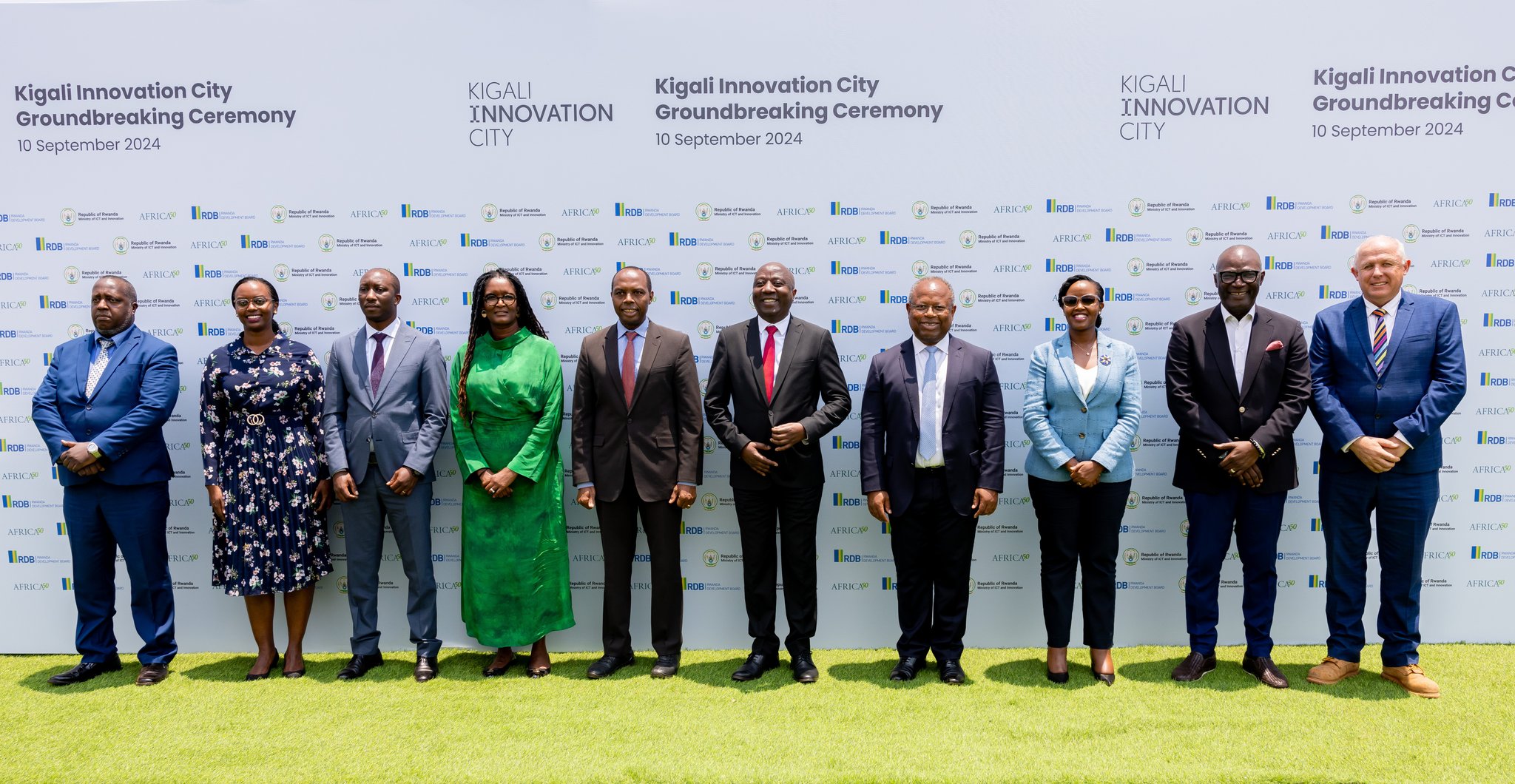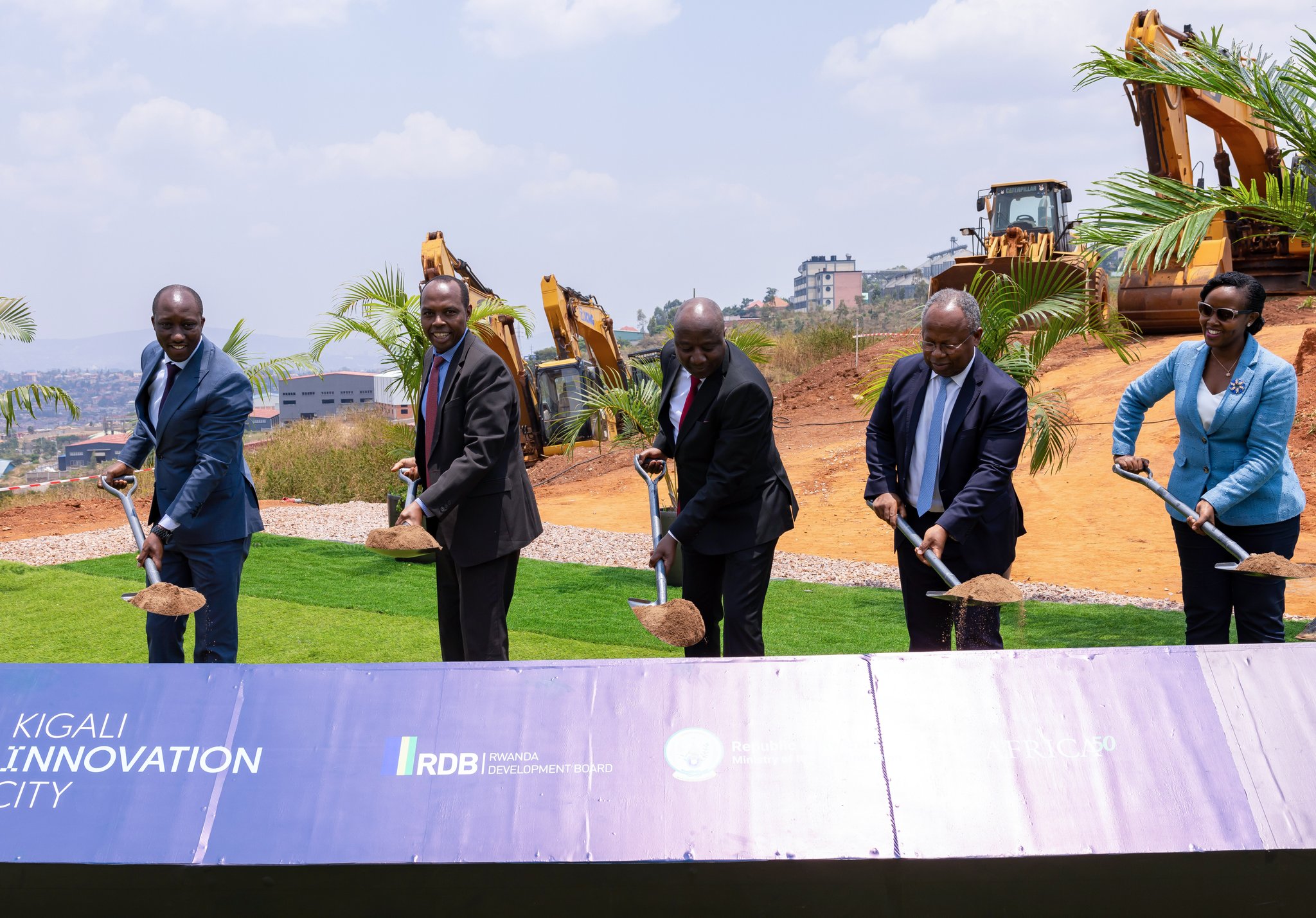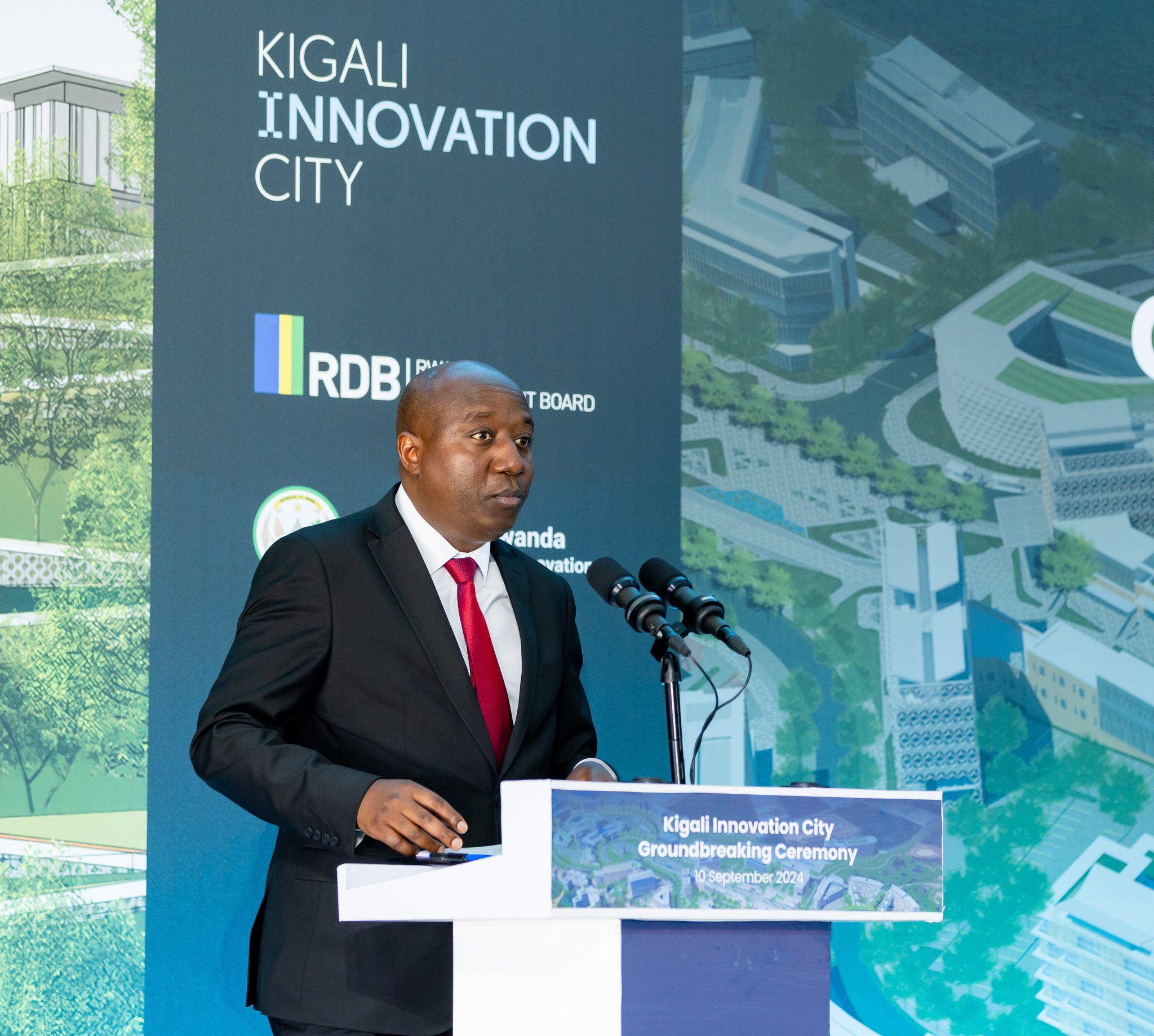On Tuesday, September 20, Prime Minister Dr. Edouard Ngirente presided over the groundbreaking ceremony for Kigali Innovation City within the Kigali Special Economic Zone, a US$2 billion project that aims to transform Rwanda into Africa’s leading technology and innovation hub.
In his remarks, Prime Minister started by thanking partners in this project, namely the Africa50 and the Arab Bank for Economic Development in Africa (BADEA), for their key role in this project.
“Through our collaboration with Africa50, the Arab Bank for Economic Development in Africa (BADEA), and other partners, we are building the foundation for a brighter future, ensuring that every African can benefit from advanced technologies and innovative solutions,” said Dr. Ngirente.
The Prime Minister noted that ongoing real estate projects within Kigali Innovation City will significantly contribute to Rwanda’s vision of a prosperous and technology-driven future.
He insisted that the Government of Rwanda is fully committed to the success of Kigali Innovation City and will continue to provide the necessary support to ensure its various components succeed.
The Premier further urged both local and international investors to take advantage of the opportunity that Kigali Innovation City offers.
“Therefore, I urge both local and international investors to seize the opportunity that Kigali Innovation City offers,” said the Prime Minister.
He concluded by thanking all stakeholders, the private sector, and international partners for their dedication and support in making Kigali Innovation City a reality.
“As I conclude, I would like to reiterate the Government of Rwanda’s commitment to the success of Kigali Innovation City,” he said.
KIC is a flagship government program aimed at creating an ecosystem centered around high-tech, innovation, and talent development to accelerate Rwanda’s transition to a knowledge-based economy.
It is a 61-hectare development within the Special Economic Zone that will encompass a work-live-play community integrating universities, Grade A offices, residential and student housing, retail facilities, and business hotels in an innovative and green smart-city concept.
KIC is expected to generate $150 million in ICT exports annually and attract more than $300 million in foreign direct investments, in addition to creating over 50,000 jobs upon its completion.
It is expected to have more than 2,600 students graduating annually from its universities over 30 years, adding to Rwanda’s and Africa’s pool of tech-savvy entrepreneurs.


Dr. Ngirente Officiates Groundbreaking Ceremony of Kigali Innovation City

